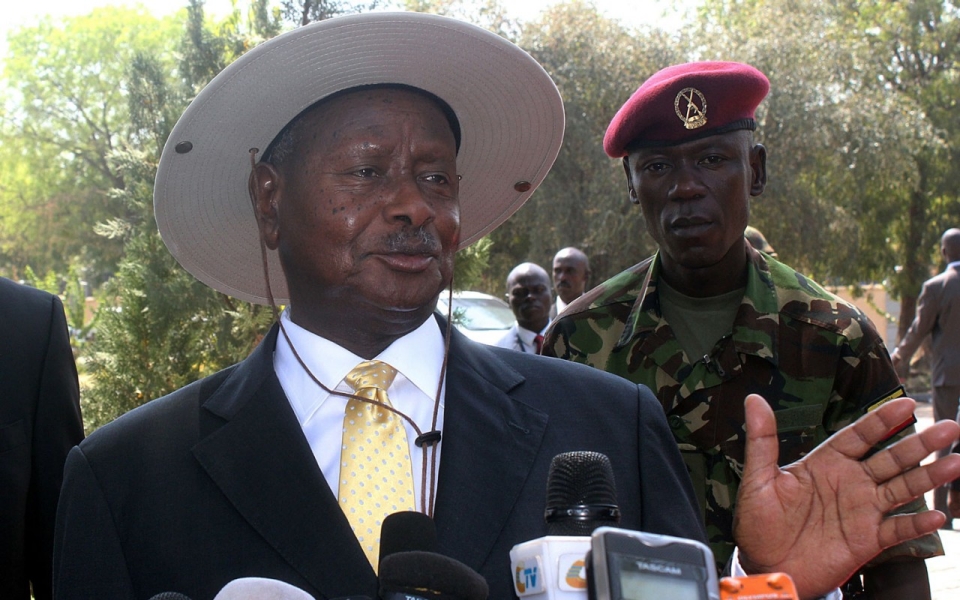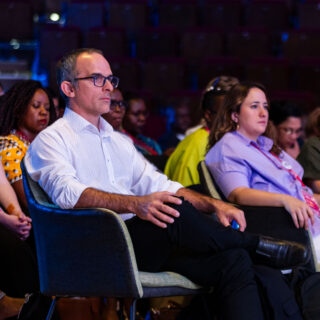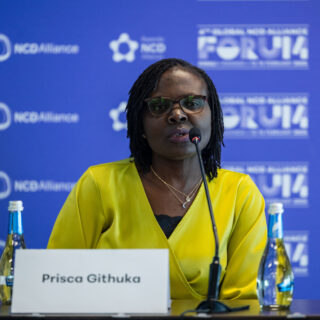
Anti and Pro-Rights of LGBTQ+ people in Africa have been throwing shades at each other for the origin of Homosexuality for years. Thus, antigay movement have emphasised the “imported” characteristic of Homosexuality while LGBTQ+ rights activists have focused on foreign aid to further narrow down this community rights. In view of recent news in East African countries and beyond this rhetoric war, it is indeed a Human Rights issue that is overshadowed and where, unfortunately, one opponent is forced to battle for the very basic Human Right; the Right to Life.
Recent updates in East African countries
The Ugandan president, Yoweri Museveni, has called on African leaders to reject “the promotion of homosexuality”, suggesting he will sign into law a controversial anti-LGBTQ+ Bill, which was passed by parliament last month. The Bill, which imposes the death penalty for “aggravated homosexuality” and life imprisonment for “recruitment, promotion and funding” of same-sex relationships, has been widely criticised internationally, with the UN high commissioner for Human Rights urging the president not to sign it.
Kenya’s newly elected president, William Ruto, said he would not allow “homosexual acts or same-sex marriage” during his term. His remarks came after an outcry led by conservative Christian and Muslim groups after last week’s Supreme Court judgement confirming that LGBTQ+ people had the right of association and that the decision to bar LGBTQ+ people from forming recognised groups is discriminatory.
In Tanzania, the sanction for same-sex acts is 30 years to life in prison, but is rarely applied. However, in 2017 the government threatened to disclose the names of gay people allegedly involved in online prostitution. This encouraged overtly homophobic politicians to step up clampdowns. For instance, the regional commissioner for Dar es Salaam on several occasions called upon the citizens to report gay people in order to have them arrested. On March 19, 2023, Mary Chatanda, the head of the women’s wing of the ruling Chama Cha Mapinduzi party called for the castration of homosexual men. “We ask the government to make stiff penalties to offences related to same-sex activities. Such people should be castrated if found guilty,” Chatanda said. She was speaking at a public gathering to mark President Samia Suluhu Hassan’s second year in office.
A court in Burundi has charged 24 people with “homosexual practices” and the President of Burundi has said that he “ ask[s] all Burundians to curse those who indulge in homosexuality because God cannot bear it. They must be banished, treated as pariahs in our country because they bring us the curse”.
(Paradoxical) rhetoric war
Many in Africa view homosexuality as a “western invention” imposed upon them by the remnants of colonising powers. Paradoxically, in the East African (very conservative) Community (EAC), most of the laws criminalising same sex relationships are often a legacy of the colonial past [1]. Nonetheless, anti-gay rights group views the law as necessary and in fact too weak to fight the “Western” evil of homosexuality that they feel is threatening to tear apart the very fabric of (East) African society. Through strong “hate speech” language, political leaders justify these laws as the result of a supposed “cultural difference” and claim that homosexuality and non-heteronormative gender identities were brought to Africa by colonisers, even if this assumption has been proven to be false by several research studies [1].
These days, some (conspiracy) theories accusing “shadowy international forces” of promoting homosexuality have gained traction in the region and have led, directly or not, to the enactment of tougher laws on LGBTQ+ community in EAC and in Africa in general (In Kenya for instance, an Archbishop of the Anglican Church speculated that the alleged spread of homosexuality was a sinister plot by environmentalists to depopulate the globe in an effort to address climate change). It is as political leaders were saying “Homosexuality is foreign” so we have to prevent its spread at all costs.
On the other hand, LGBTQ+ activists of the region have opposed a different discourse, saying that “Homophobia was foreign” because it was/is pushed by western conservative religious groups (most of the religions in Africa were brought by colonialists). They have shown evidence that some African homophobic campaigns have been funded or supported by Western Christian right-wing campaigners such as US evangelist Scott Lively in Uganda. In 2010 for instance, they noted that the Family Research Council (an American evangelical activist group) spent over $25,000 on US congressional lobbyists to advocate for US support and promotion of the Anti-Homosexual Bill (AHB) in Uganda. A case study on Kenya showed that Holy See (affiliated to Roma Catholic institutions) statements on marriage and against “the various forms of the ideology of gender” have clearly influenced the Kenyan 2016 family policy [2].
In that vein, one could wonder whether the resurgence of pro-life rhetoric in EAC is a coincidence with the wave of anti-LGBTQ+ and anti-abortion laws being introduced and passed simultaneously in other countries, especially in several US states. Would it be the US Far-right conservative wing, that has launched a coordinated effort in state governments to control specific rights of specific people, pushing for these laws in Africa?
All in all, we can sum up this rhetoric variation paraphrasing the excellent work [3] of Stella Nyanzi on the paradox of foreign influence on Homosexuality in Uganda, in two sentences; “Homosexuality is foreigner, Homophobia is indigenous” from political leaders viewpoint and “Homophobia is foreigner, Homosexuality is indigenous”, from activists point of view.
None can deny the fact that foreign entities play a significant role and have a significant influence in both the promotion and reduction of LGBTQ+ Human Rights. The above-mentioned facts have shown that foreign entities help African institutions to reduce the rights of a certain group. In turn, symbols (rainbow flag), nomenclature (LGBTQ+ acronym), pronouns emphasis, among other things, are proof of the globalisation of the queer culture within LGBTQ+ African communities. Plus, connections with several other global or foreign LGBTQ+ advocacy organisations are variously evident in the LGBTQ+ communities in most African countries. But, this variety of points of view should not overshadow the important issue here, HUMAN RIGHTS.
Beyond the rhetoric war, human lives at stake
This rhetoric war is causing a lot of damage to (East) African people and families. For instance, the Ugandan Bill, once signed, will cause irreparable harm to LGBTQ+ people and their allies, will halt any development progress in tackling HIV and AIDS, and will leave the human rights of Uganda’s most marginalised population in shreds. This Bill will magnify some of Uganda’s development issues even further, deepen poverty amongst this group, increase the spread of HIV, harm its own citizens, and will only serve to temporarily please some voters and politicians. And this will not only harm Ugandan people but will spread across the region.
The above-mentioned situation is a “Deja-vu” and, unfortunately, we seem not to learn our lessons. In February 2014, Uganda signed into law the Anti-Homosexuality Bill, dramatically increasing criminal consequences for “consensual sexual activity between adults of the same sex,” including life imprisonment. The law also criminalised the “promotion of homosexuality,” posing risks for health care workers and human rights defenders who work with LGBTQ+ populations. The law had a swift, negative impact on LGBTQ+ Ugandans who reported a spike in human rights abuses immediately following its passage; hundreds reportedly fled to Kenya and other countries.
This act providing for the death penalty was eventually annulled in court. However, this acted as a green light for a newspaper to disclose gay persons’ names, putting them at risk of being attacked or killed, as had already happened in the past. Persecutions based on sexual orientation had increased since the announcement of this act [2]. This happened – is still happening – when most of the EA countries have several provisions in their respective Constitution that guarantee equality, the right of all persons to respect and human dignity. They also prohibit discrimination against all persons and have provisions for freedom of expression and association.
Foreigner or not, Indigenous or not, LGBTQ+ social movements are battling for essential and basic Human Rights such as the right to life, the right to non-discrimination on grounds of sexual orientation and gender identity, freedom of assembly and organising, the right to security and safety of person and property, freedom from arbitrary arrests, torture or inhumane treatment, the right to privacy and protection from libel and sedition in the public press, etc. And they do so based on the social, cultural, political and economic background of their respective country. We hope to see changes in our region as we are noticing elsewhere in Africa some promising results, with Sudan removing the death penalty for Homosexuality and with other nations such as Botswana, Gabon, and Angola, all decriminalising Homosexuality around the same time.
REFERENCES
[1] Muguongo W et al. 2015. Kenya LGBTI Landscape Analysis of Political, Economic and Social Conditions. New York: Astraea Lesbian Foundation for Justice.
[2] Lusimbo R & Bryan A 2018. Kuchu resilience and resistance in Uganda: a history. In Nicol Nancy et al. (Eds), Envisioning Global LGBT Human Rights: (Neo)colonialism, Neoliberalism, Resistance and Hope, pp. 323-345. London: University of London Press.
[3] Nyanzi S 2013. Homosexuality in Uganda: The Paradox of Foreign Influence. MISR Working Paper No.14. Kampala: Makerere University.



